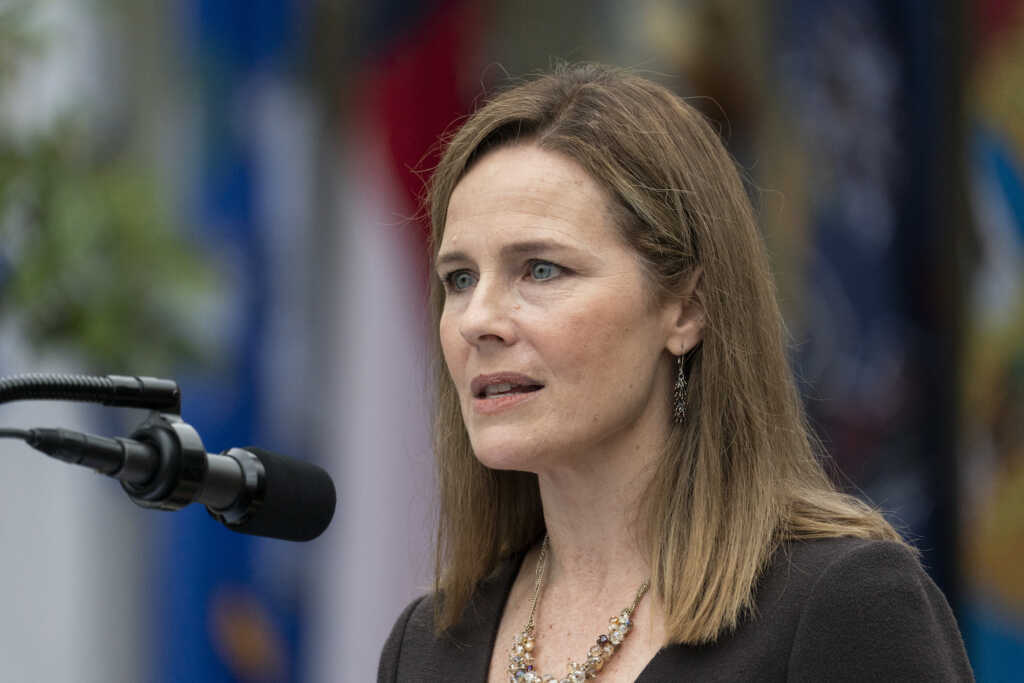In the same way second lady Karen Pence was attacked by the media in 2019 for teaching part-time at a Christian school that held to mainstream Christian doctrine, Supreme Court nominee Amy Coney Barrett is now facing blowback for having been involved in a school that holds to the biblical belief that marriage is a sacred union between one man and one woman.
Barrett, nominated Saturday to fill the high court seat left vacant by the late Justice Ruth Bader Ginsburg, served on the board of trustees at The Trinity School in South Bend, Indiana, from 2015-17, according to a Politico report.
At the center of the article is the school’s “clear, conservative Christian set of values, including discouraging sex before marriage and cautioning students who experience same-sex attraction from ‘prematurely interpret[ing] any particular emotional experience as identity-defining.'”
The Politico writer, Adam Wren, who has a background in evangelical education, has insisted the article is not a “hit piece,” but a “nuanced look at a religious community in South Bend and what it means in the community.”
Wren argued in his piece that the school was “at odds with American law” during the time Barrett, now a judge of the 7th Circuit Court of Appeals, was on the board. He was referring to the fact that the school’s “cultural statement” continued to reflect a mainstream religious conviction against homosexuality even after the Supreme Court’s decision in 2015 to legalize same-sex marriage nationwide. The statement has since been amended to read:
We understand marriage to be a legal and committed relationship between a man and a woman and believe that the only proper place for sexual activity is within these bounds of conjugal love. Outside of marriage so understood, we believe that sexual activity (whether heterosexual or homosexual) is not in keeping with God’s plan for human sexuality.
The Politico article came the same evening The Washington Post published a piece expressing worry over Barrett’s faith, much like anti-Catholic Americans attacked then-presidential candidate John F. Kennedy in 1960.
Post writers Emma Brown and Jon Swaine penned their concerns over the fact that Barrett has spoken at a training program for Christian law school students designed to inspire a “distinctly Christian worldview in every area of law” and to show them “how God can use them as judges, law professors and practicing attorneys to help keep the door open for the spread of the Gospel in America.”
The summer training program, the Blackstone Legal Fellowship, is affiliated with the right-leaning Alliance Defending Freedom, a law firm dedicated to advancing religious liberty causes. The progressive Southern Poverty Law Center has labeled ADF an “extremist group” due to its defense of marriage as a union between one man and one woman.
Barrett, who has spoken at the fellowship five times, faced myriad faith-based questions from Democratic senators during her first confirmation hearing in 2017, when President Donald Trump nominated her for a federal judgeship.
She made clear at the time: “I would never impose my own personal convictions upon the law.”
Perhaps the most famous line of attack, though, came from Sen. Dianne Feinstein (D-Calif.), who, despite Barrett’s repeated insistence she is able to separate her personal beliefs from her role on the bench, told the then-nominee: “The dogma lives loudly within you, and that’s of concern.”
“Judge Barrett has said that as a judge she’s not a policymaker and that it’s not appropriate for her or any judge to follow their personal convictions in deciding a case, which is also one of the many reasons President Trump laid out as to why he selected her as his nominee to the Supreme Court,” said Judd Deere, a spokesperson for the White House.
All of this comes as progressive lawmakers are gearing up to center their criticisms, once again, on Barrett’s Catholic faith.
Last week, Feinstein refused to say whether she’d zero in on Barrett’s Christianity again. Sen. Mazie Hirono (D-Hawaii), however, had no problem saying she does not believe Barrett’s Catholic faith should be off-limits during the confirmation process.
“Why should we say you get a lifetime appointment so that you can reflect your ideological agenda in your decision making?” asked Hirono.
Senate hearings are expected to begin Oct. 12.



